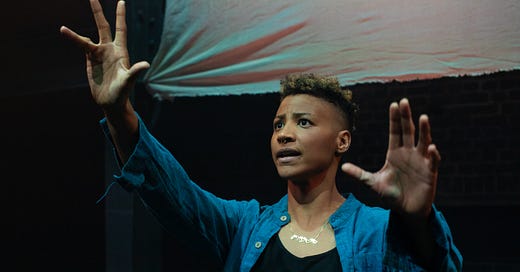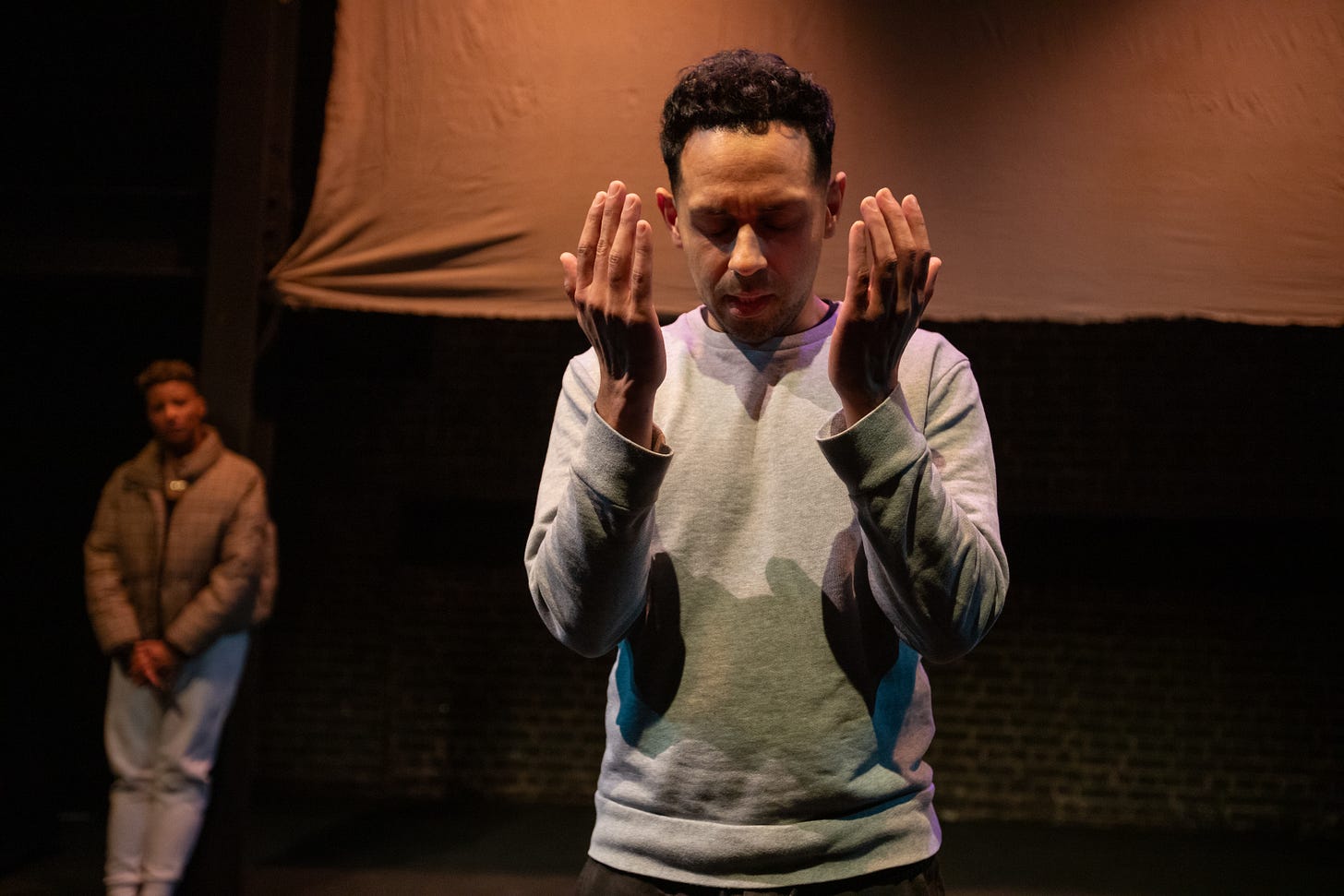We need to talk about theatre’s silence on Palestine
Is it sensitivity, or censorship, that’s behind the lack of response on British stages?
By Holly O’Mahony
“FREE PALESTINE!”
In an east London auditorium, a performer shouts the two words that have sparked fear and furious rows in British theatres this last year, and the room erupts in thundering, elongated applause.
For this audience, those two words righteously call for the liberation of a people who have lived for decades under an oppressive occupation that’s currently carrying out a genocide against them. But there are some who hear ‘Free Palestine’ as an antisemitic call that questions Israel’s very right to exist.
So perhaps it isn’t surprising that British theatre is so nervous about discussing the conflict in Gaza. But if theatre is going to speak to the biggest issues in our society, it needs to learn how to talk about Palestine.
I’m at the Arcola, one theatre that is rising to the challenge in staging a selection of short plays written in response to the conflict, which has left over 1,100 Israelis and over 45,600 Palestinians dead since Hamas’s barbaric attack on 7 October, and Israel’s subsequent, ongoing annihilation of the Occupied Palestinian territories. Cutting the Tightrope: The Divorce of Politics From Art is a much-needed revival of a production that ran at the same theatre back in May, with three new pieces added to the programme.
It now comprises 11 short plays from as many playwrights. Though a flyer lists the writers involved, their names have not been paired to particular works to protect them from a potential career-threatening backlash. And it is a brave project for any theatre or creative to be involved with at a time when so much as wearing a ‘Free Palestine’ badge has resulted in a venue and its staff being reported to the Charity Commission.
Most of the plays dive straight into confrontations. Some are more poignant than others, but all are thoughtful, urgent and heartfelt. One follows a girl whose entire family was massacred in their car as they attempted to flee from the north to the south of their country. Another focuses on a tense encounter between a woman and her partner’s parents, who can’t understand why she’d make political art that doesn’t sell when she could be making profitable pet portraits. Most of the plays don’t mention Palestine specifically, and some are not about it at all. The most on-the-nose reference comes from a satirical skit involving a cat-and-mouse chase between a stray watermelon and a theatre boss who believes the fruit (that has long been a stand-in symbol for the Palestinian flag) should be banned on stage.
“STAND THE FUCK UP AND BE COUNTED, BEFORE IT’S TOO LATE.”
It’s the same urgent voice, shouting to more cheers and whoops from the audience. Yet this rage is resounding in an echo chamber – one studded with ‘Free Palestine’ badges and wrapped in keffiyeh scarves. I can’t imagine anyone in the room does not support the cause.
But many – including myself – would struggle to “stand the fuck up” in any meaningful way if our views were openly challenged; certainly not as passionately and persuasively as this cast. So, a few days later, I attend a workshop run by Makan, a Palestinian-led educational organisation, held in conjunction with Cutting the Tightrope. Its goal is to arm us with some techniques and vocabulary to talk about Palestine in a way that’s meaningful and not defensive. We cover a lot of ground, unpacking terms like “conflict” and “war” that many feel unfairly suggests an even playing field. We’re also given a three-pronged ‘ABC’ framework to use in discussions:
A: acknowledge the question
B: bridge the topic
C: communicate your response
Keep reading with a 7-day free trial
Subscribe to Exeunt to keep reading this post and get 7 days of free access to the full post archives.






